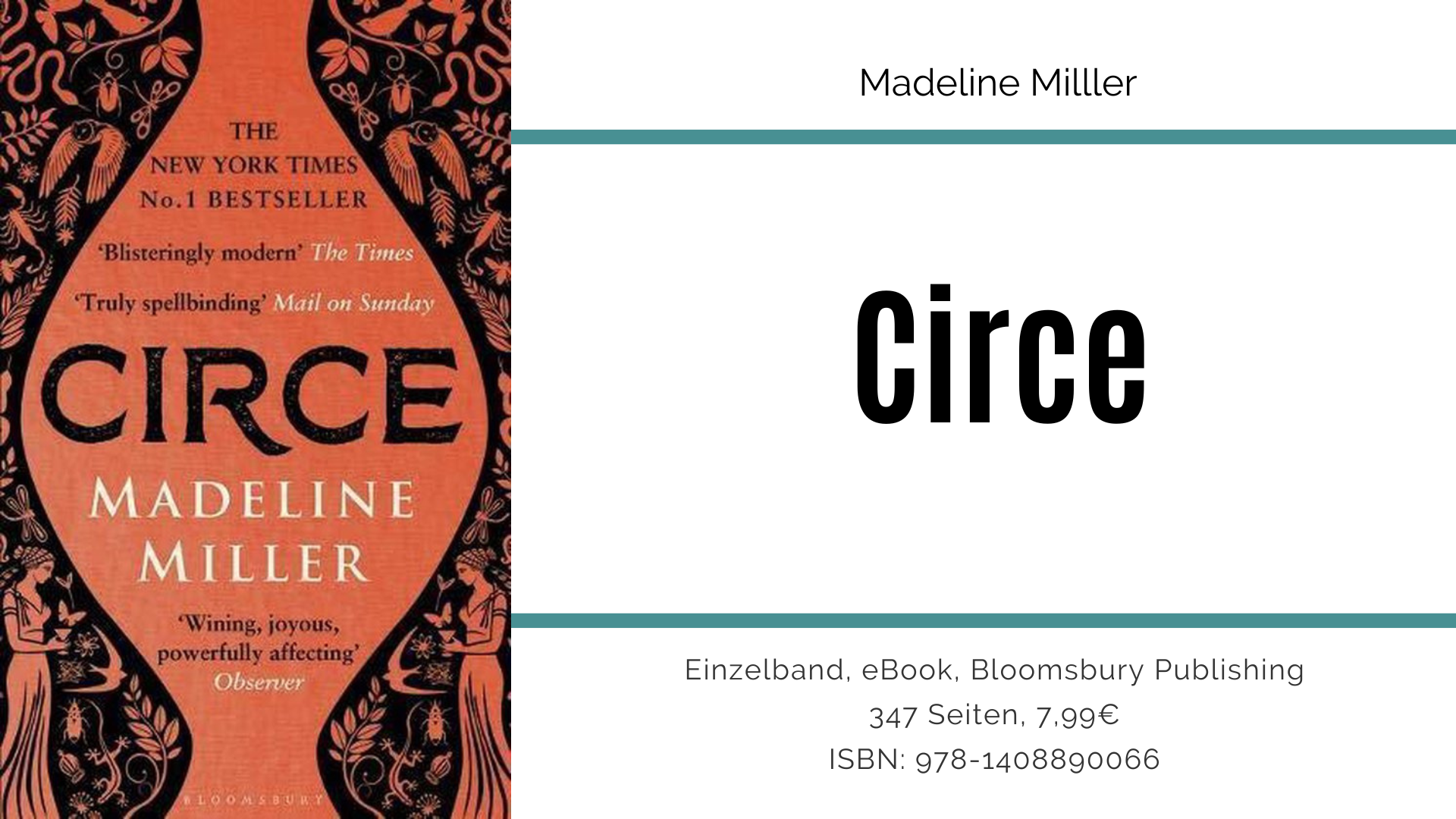Woman. Witch. Myth. Mortal. Outcast. Lover. Destroyer. Survivor. CIRCE.
In the house of Helios, god of the sun and mightiest of the Titans, a daughter is born. Circe is a strange child – not powerful and terrible, like her father, nor gorgeous and mercenary like her mother. Scorned and rejected, Circe grows up in the shadows, at home in neither the world of gods or mortals. But Circe has a dark power of her own: witchcraft. When her gift threatens the gods, she is banished to the island of Aiaia where she hones her occult craft, casting spells, gathering strange herbs and taming wild beasts. Yet a woman who stands alone will never be left in peace for long – and among her island’s guests is an unexpected visitor: the mortal justify, for whom Circe will risk everything.So Circe sets forth her tale, a vivid, mesmerizing epic of family rivalry, love and loss – the defiant, inextinguishable song of woman burning hot and bright through the darkness of a man’s world.
My first book by the author
I have heard of Madeline Miller for years now, but only a month ago, I got to start reading a full novel of hers. People’s excitement about The Song of Achilles and Circe got me to read her short story on Galatea and eventually to be excited about this book as well. Unfortunately, I had quite a tricky time getting through it, which I only partly attribute to the book and the author’s writing style and mostly to my overall mood the last month. Especially as this retelling of Greek mythology has to offer a lot.
Later, years later, I would hear a song made of our meeting. The boy who sang it was unskilled, missing notes more often than he hit, yet the sweet music of the verses shone through his mangling. I was not surprised by the portrait of myself: the proud with undone before the hero’s sword, kneeling and begging for mercy. Humbling women seems to me a chief pastime of poets. As if there can be no story unless we crawl and weep.
More than a lifetime
Although the book has not even 400 pages, we got to spend centuries with the main character, from her childhood to hundreds of years of her life. As she gets exiled in the earlier part of her life, there are parts of it that are rather summarized and brushed over, while we linger with some more significant and exciting encounters of hers. Maybe it was the burden of all those centuries that made this book feel so long and expansive to me. I cannot say that I wasn’t excited about the characters and stories mentioned and the writing style in general, as this book certainly gives the impression of being a modern classic. My interest in Greek mythology was sparked repeatedly with references and loose threads returning throughout the story.
I passed a pear tree drifted with white blossoms. A fish splashes in a moonlit river. With every step I felt lighter. An emotion was swelling in my throat. It took me a moment to recognise what it was. I had been old and stem for so long, carved with regrets and years like a monolith. But that was only a shape I had been poured into. I did not have to keep it.
Feminist and reflective of modern society
From early on, we can find parallels between this story starting in ancient times and our modern struggles in society, especially when it comes to the role of women in it. We encounter several different women through Circe’s eyes and get to witness how they deal with the restrictions put onto them by their fathers, husbands, or peers. We also—and I enjoyed that most of all—get to experience Circe’s own development and finding of her voice and strength. What seemed at first like her demise soon turned into her own paradise and way of finding herself and her power as an individual. When encountering others, she acts based on her former experiences but also gets to reflect and readjust her point of view. The book therefore offers a great balance between character development and action points.
At night we crossed the hollows of each other’s skin, and when he slept I would lay beside him, feeling the warmth where our limbs touched, watching the soft pulse at his throat. His eyes had creases, and his neck had more. When people saw us, they thought I was younger. But though I looked and sounded like a mortal, I was a bloodless fish. From my water I could see him, and all the sky behind, but I could not cross over.
In conclusion,
This might not have been the right time or I might not have been in the right mood, but I appreciate and acknowledge the beauty that Madeline Miller has created with this feminist retelling of a character who has rather been seen as a hindrance and threat in a hero’s story. This book reclaims that narrative and therefore offers a great alternative reading to ancient stories as much as modern societal issues.

The author:
Madeline Miller is the author of The Song of Achilles, which won the Orange Prize for Fiction 2012, was shortlisted for the Stonewall Writer of the Year 2012, was an instant New York Times bestseller, and was translated into twenty-five languages. Madeline holds an MA in Classics from Brown University, and she taught Latin, Greek and Shakespeare to high school students for over a decade. She has also studied at the University of Chicago’s Committee on Social Thought, and at Yale School of Drama, where she focused on the adaptation of classical texts to modern forms. Her essays have appeared in publications including the Guardian, Wall Street Journal, Lapham’s Quarterly and NPR.org. She lives outside Philadelphia. madelinemiller.com Source

